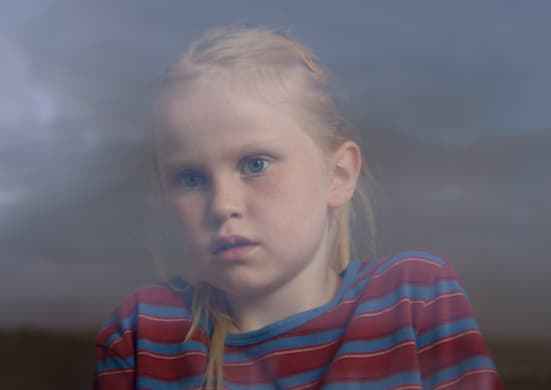If These Children Are Our Future, We’d Better Beware
On the whole, ‘The Innocents’ is overscaled — a haiku trying to pass itself off as an epic poem. Still, there’s much to be said for Nordic restraint in telling a tale that could have easily gone off the rails.

“The Innocents,” the most recent effort from director Eskil Vogt, should not be confused with the 1961 classic of the same name or, for that matter, its source material, the Henry James novella “The Turn of the Screw.”
Mr. Vogt hasn’t, in other words, remade the Jack Clayon film nor does he reference James. All the same, Mr. Vogt is sly enough to poach upon our cultural memory in tweaking the notion that the world of children is a secret society that operates outside the purview and authority of adults.
In the case of both movies, the title is used ironically, the innocence of children being called very much into question. Mr. Vogt’s film, which he also wrote, doesn’t have an ounce of sentiment or idealization in its depiction of childhood. He taps into a current of skepticism that recalls literary precedents like William Golding’s “Lord of the Flies” and “The Midwich Cuckoos,” a science fiction novel by John Wyndam.
The latter was made into “Village of the Damned,” a cult favorite in which George Sanders dealt with a host of children with blonde hair, glowing eyes, and telepathic powers. There are four children in “The Innocents,” only two of whom are blonde and not all of them gifted. A frisson of damnation remains, all the same.
The main players are all pre-teen, and it’s to the director’s credit that he elicits performances that are unfeigned and organic, even when the circumstances of the plot are outside the ken of rationality. For a film in which parents are largely absent, Mr. Vogt has done his casting with a keen eye.
“The Innocents” opens with a close-up of a young girl, a shot that is both intimate and obtrusive. As the camera moves back, we see Ida (a pensive Rakel Lenora Fløttum) asleep in the backseat of a car. Her mother and father (Ellen Dorrit Pedersen and Morten Svartveit) are up front, taking in the sights as they travel to their new home. Next to Ida is her older sister, Anna (Alva Brynsmo Ramstad), whom Ida looks at with palpable distaste. She reaches over and pinches Anna’s thigh, twisting the flesh. Anna has no reaction, oblivious to the pain.
Or maybe not. Anna is autistic, and hasn’t spoken in several years. She does spend an inordinate amount of time with an Etch-a-Sketch, making frantic marks that, at pivotal moments, coalesce into a set of distinct signs and symbols. There is, as you might suspect, more to Anna than we’re initially made privy to.
“The Innocents” takes place in a housing complex in Norway, a block of towers that hints at socialist ideals gone to seed. Exploring the grounds, Ida sees a small boy being bullied, and cautiously befriends him. Turns out that Ben (Sam Ashraf) is capable of “magic,” and can move objects through force of will. He also has an unsettling capacity for cruelty. Cat fanciers, you have been warned.
The final member of the quartet is Aisha (the winsome Mina Yasmin Bremseth Asheim), a 7-year old who lives at some distance from her cohorts. She connects with them through a radar-like ability to pick up on the thoughts of others, particularly Anna. Within this cadre of isolated children, Ida is the lone member without an extra-sensory capability.
Mr. Vogt is adamantly low-key in his cinematic approach and, perhaps, too recalcitrant in setting out the power struggles soon to ensue. His favorite camera movement is the slow creep forward, and, over the long haul, this approach is less suspenseful than ponderous. Sometimes a filmmaker just needs to get on with it.
On the whole, in fact, “The Innocents” is overscaled — a haiku trying to pass itself off as an epic poem. Still, there’s much to be said for Nordic restraint in telling a tale that could have easily gone off the rails. There’s no shortage of bad seeds in cinematic history, but for close to two hours, Mr. Vogt puts us in touch with something primal and not a little true. Surely, Henry James would have smiled upon that.

